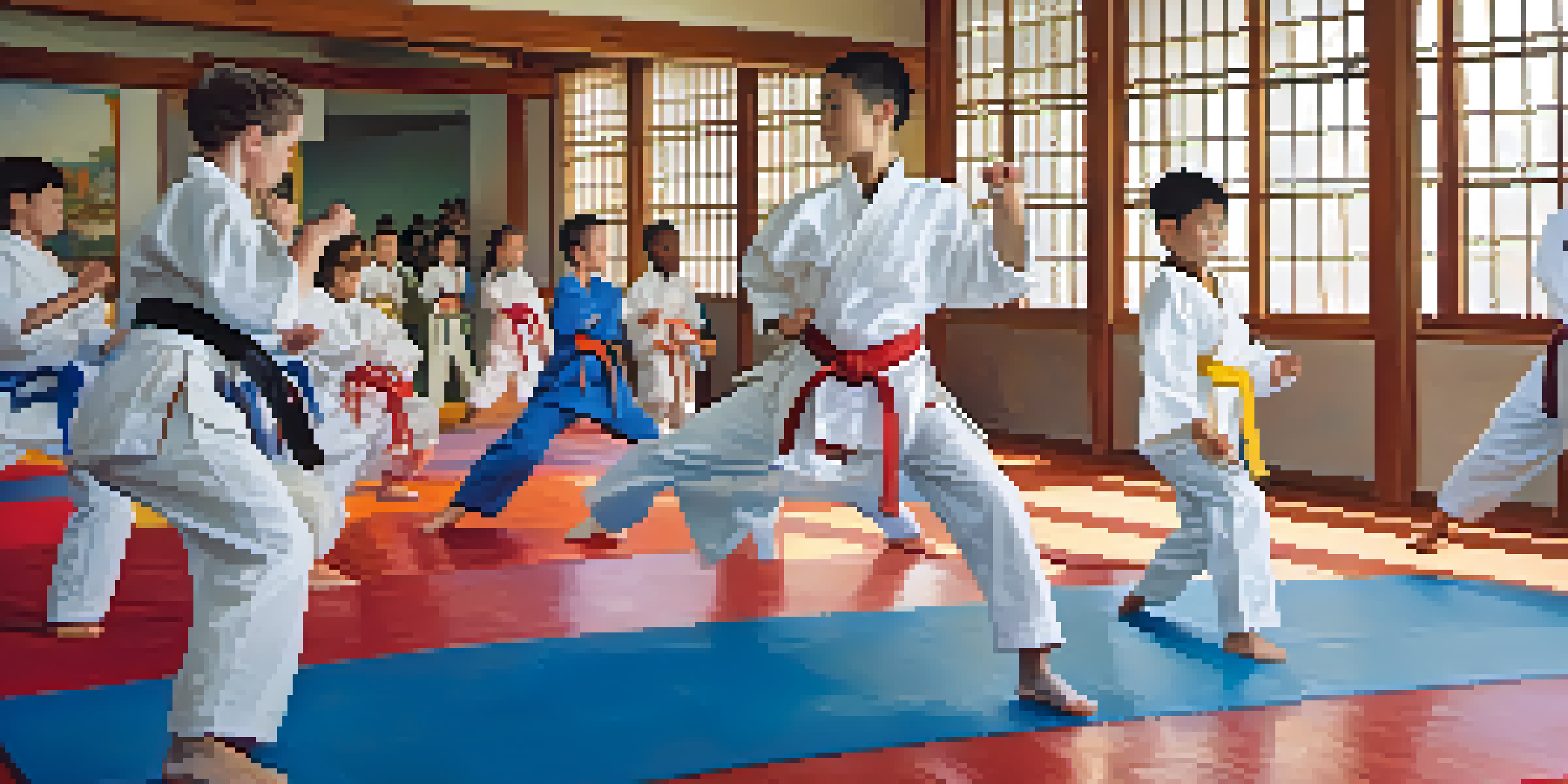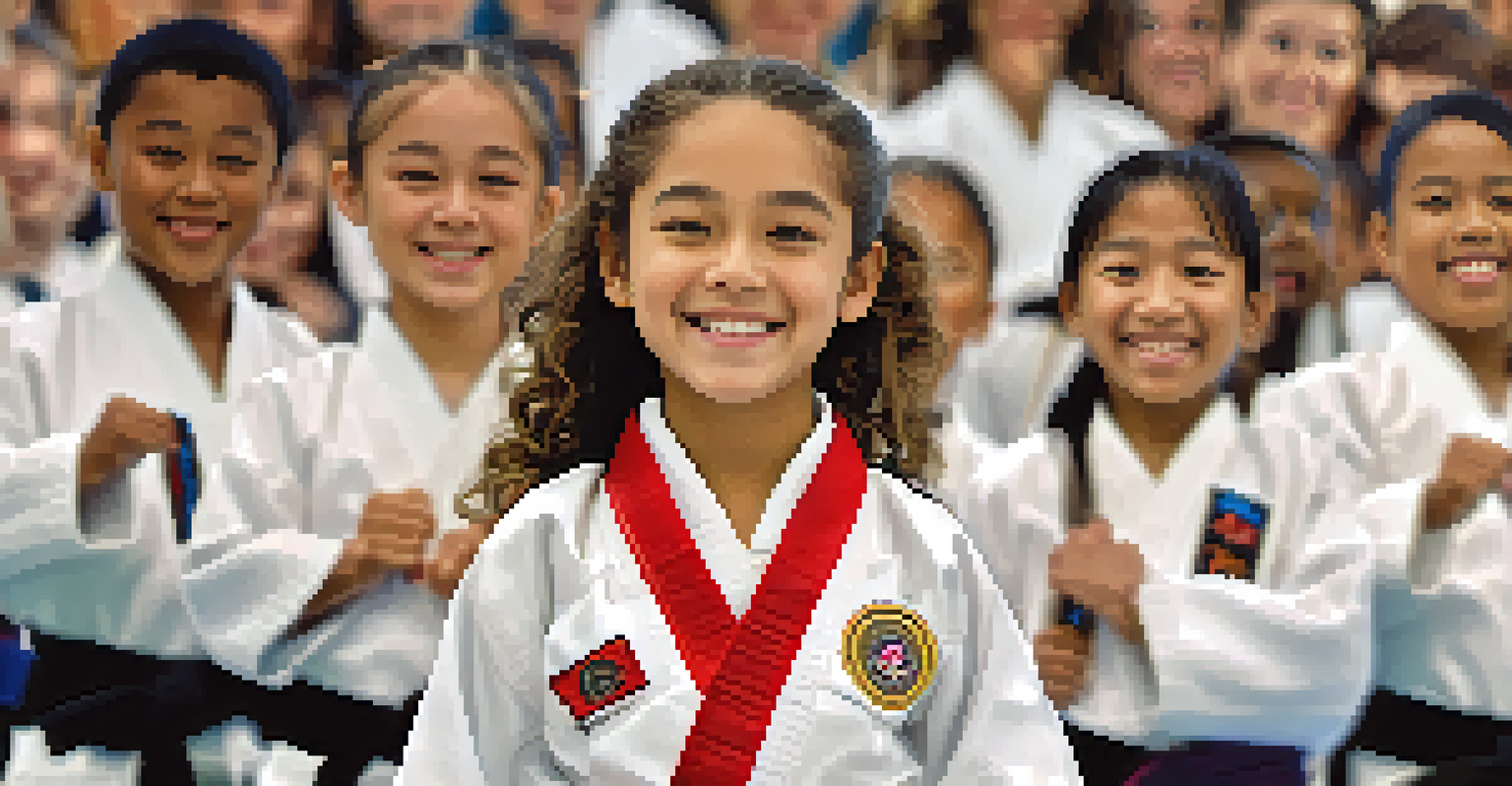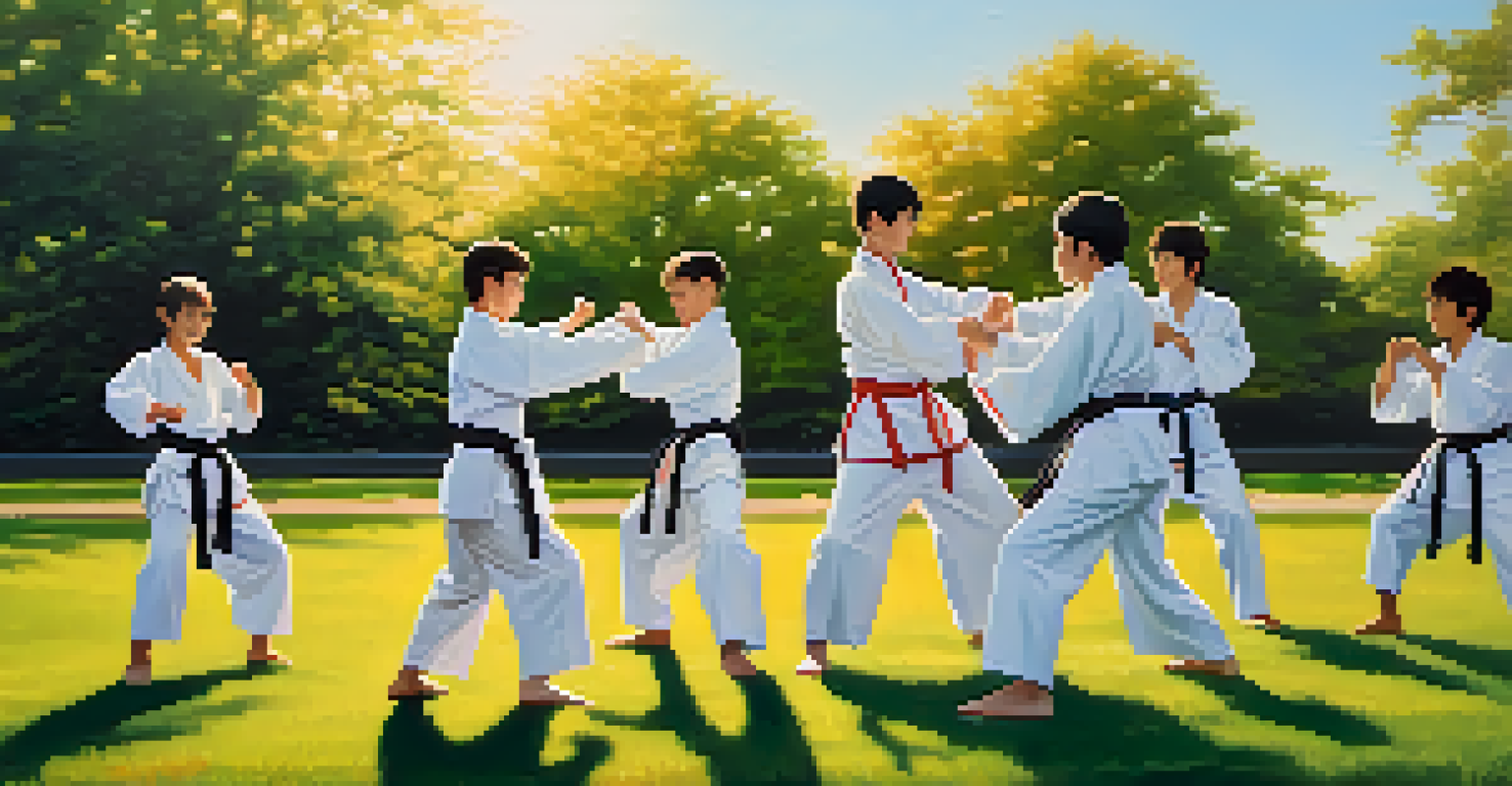Martial Arts as a Tool for Combating Obesity in Youth

Understanding Youth Obesity and Its Impact
Youth obesity has become a pressing issue, affecting physical health and self-esteem. With the rise of sedentary lifestyles and unhealthy eating habits, many children and teens find themselves struggling with weight management. This growing concern not only poses health risks but can also lead to emotional challenges, such as anxiety and depression.
The greatest wealth is health.
Statistics show that obesity rates among youth have tripled since the 1970s, making it crucial to find effective solutions. The consequences of obesity can extend beyond physical conditions like diabetes and heart disease, impacting social interactions and academic performance. Addressing this issue early on is essential for fostering a healthier future generation.
Martial arts offer a unique way to tackle these challenges, combining physical activity with mental discipline. This approach not only helps with weight loss but also instills valuable life skills that can empower young individuals to make healthier choices.
How Martial Arts Encourage Physical Activity
One of the most appealing aspects of martial arts is that it makes exercise engaging and fun. Unlike traditional workouts that can feel repetitive, martial arts classes often incorporate dynamic movements and techniques that keep participants excited. This variety helps children and teens stay motivated and eager to return.

In martial arts, students learn through games, drills, and sparring, which increases their heart rates and burns calories. For many young people, this can be a welcome change from the monotonous routines of gyms or team sports. Plus, the camaraderie developed in classes fosters a sense of belonging, which can be especially beneficial for those who may feel isolated due to their weight.
Martial Arts Boosts Youth Fitness
Engaging in martial arts provides a fun and dynamic way for young people to stay active and combat obesity.
As they progress in their training, students often notice improvements in their strength, flexibility, and endurance. These physical benefits not only aid in combating obesity but also contribute to a more positive self-image and a greater sense of accomplishment.
Building Confidence Through Martial Arts Training
Martial arts training is about more than just physical fitness; it also plays a crucial role in building self-confidence. As students learn new techniques and achieve their goals, they experience a sense of accomplishment that can be incredibly empowering. This newfound confidence can help them tackle challenges both on and off the mat.
It's not about being the best. It's about being better than you were yesterday.
For many young people struggling with obesity, feelings of inadequacy and low self-esteem can be common. Engaging in martial arts gives them a safe space to express themselves and overcome these feelings through hard work and dedication. This shift in mindset can lead to healthier lifestyle choices and greater resilience in facing obstacles.
Moreover, martial arts instructors often emphasize the importance of respect, discipline, and perseverance. These core values not only contribute to personal growth but also encourage students to embrace a healthier and more active lifestyle beyond the dojo.
The Role of Discipline in Weight Management
Discipline is a fundamental principle in martial arts, and it can significantly influence a young person's approach to weight management. Practicing martial arts requires dedication and commitment, which can extend to other areas of life, including nutrition and exercise habits. This discipline fosters a mindset that values hard work and consistency.
As students learn to set goals and work toward achieving them in their martial arts practice, they can apply the same principles to their weight loss journeys. This includes making healthier food choices, engaging in regular physical activity, and being mindful of their body. Over time, these habits can lead to sustainable weight management and a healthier lifestyle overall.
Building Confidence Through Training
Martial arts helps students develop self-confidence and resilience, empowering them to make healthier lifestyle choices.
Instructors often encourage students to reflect on their progress, celebrate their achievements, and learn from setbacks. This growth-oriented mindset not only builds resilience but also helps combat obesity by promoting a positive relationship with food and exercise.
Martial Arts as a Social Activity
One of the significant benefits of martial arts is its social nature, providing an opportunity for young people to connect with peers. Classes foster a sense of community, where students encourage one another and celebrate each other's successes. This supportive environment can be particularly helpful for those feeling isolated due to their weight.
Engaging in a group activity like martial arts helps combat loneliness and promotes teamwork, both essential elements in building lasting friendships. The bonds formed in class can motivate students to show up consistently, leading to improved physical fitness and overall well-being.
Additionally, social interactions during training can cultivate communication skills and emotional intelligence, enriching students' lives beyond the dojo. This holistic approach can be especially important for youth facing the social challenges of obesity, making martial arts a valuable tool for personal growth.
Choosing the Right Martial Arts Program
When considering martial arts as a solution for combating obesity, it's essential to choose the right program. Parents should look for classes that prioritize inclusivity, safety, and skill-building over competition. Programs designed for beginners can help ensure that all students feel welcomed and supported.
Additionally, instructors should be experienced in working with youth and understanding their unique challenges. A good instructor will be attentive to each student's individual needs and provide guidance to help them progress at their own pace. This personalized approach can make all the difference in a student's experience and motivation.
Social Connections Enhance Well-being
The supportive community within martial arts classes fosters friendships and teamwork, which can alleviate feelings of isolation.
Researching local martial arts schools and attending introductory classes can help parents and students find the right fit. By choosing a program that aligns with their interests and goals, young people can embark on a transformative journey toward better health and self-confidence.
Success Stories: Youth Who Transformed Through Martial Arts
There are countless success stories of young people who have found their footing in martial arts and made remarkable transformations. These inspiring tales often highlight how martial arts not only helped them lose weight but also changed their outlook on life. Many students report feeling more confident, capable, and connected to others after joining a martial arts program.
For instance, one young girl struggled with her weight and self-esteem until she discovered karate. Through consistent training, she not only shed pounds but also gained a community of friends and a newfound passion for fitness. Her journey demonstrates how martial arts can serve as a catalyst for change, encouraging healthier habits and a more positive self-image.

These stories serve as a powerful reminder that martial arts can be a life-changing experience for young individuals battling obesity. By fostering a supportive environment and emphasizing personal growth, martial arts can help youth not only combat obesity but also thrive in all aspects of their lives.